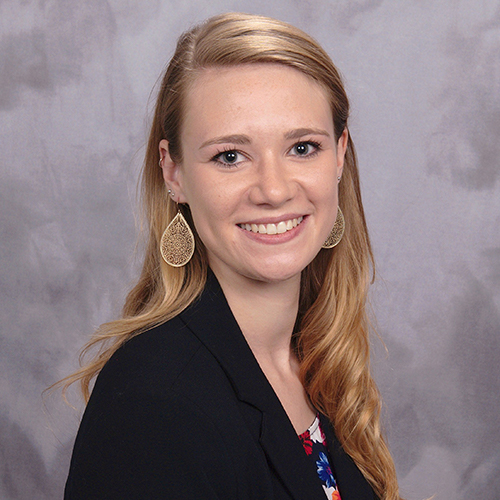Allison Tinsey, L'18

Current Title and Employer: Counsel for Governmental Affairs, U.S. Senate Homeland Security and Governmental Affairs Committee, Emerging Threats and Spending Oversight Subcommittee (Majority Staff)
Current Location: Wasington, D.C.
How would you describe your job? I advise the subcommittee’s Chair and perform oversight through legislation and other means on policy related to the federal government’s spending (or waste) of taxpayer dollars, as well as its management, the federal workforce, administrative/regulatory procedure, acquisitions, contracting, the United States Postal Service, the Census, and the D.C. government.
How did you obtain your job? In two words, I got my job through networking and persistence. In more words, I capitalized on Richmond Law’s proximity to Washington, D.C., and its focus on public service (along with my own determination and charm) to secure four distinct internships on Capitol Hill. These experiences introduced me to the committee I now work for and the topics I developed expertise in. When my boss lost reelection in fall 2018, I used my knowledge and the relationships I gained through these experiences to be hired to my current position.
How did your Richmond Law experience prepare you for the work you do now? Richmond Law’s robust law skills program is the most useful part of my academic experience in my daily work. I communicate and translate complex laws and ideas, along with their merits and consequences, via phone, email, memos, meetings, oral presentations, etc. I would not be able to do my job – and do it successfully and effectively – without these skills. Additionally, the generous Summer Public Service Fellowship, Washington, D.C. Externship Program, and Bridge to Practice Fellowship allowed me to pursue internships on Capitol Hill that were pivotal to building relationships necessary to land my job and ignite my career.
What makes you passionate about your work? Although I operate with a healthy dose of cynicism, I firmly believe that the success of federal programs that serve the American people and those around the world depends on the effective and efficient operation of the federal government itself. Congress – and the committee I work for, in particular – is one of the chief government oversight entities, but it also has the ability to act to improve operations through law. For me, identifying waste, fraud, and abuse is only half the job. I’m also passionate about finding and implementing solutions to address the causes of the problems we identify.
What are 3 pieces of advice you’d offer to current students interested in an alternative or emerging career path like yours?
-
- Network. Networking is not just a way to get a job on the Hill, but it is also how you keep a job on the Hill. The relationships you form through networking can provide limitless opportunities for coalition building to achieve your goals as a policy staffer. Ironically, for we who rely on relationships for success, networking is an unnatural exercise. Thus, you need to practice. Write down the answers to commonly asked questions. Write down questions you want to ask. Keep a spreadsheet (or email folder) of people you’ve met, where they work, when you contacted them, when to follow up, etc. Find an excuse to contact people – holidays, start or end of a semester, a new internship or job, finding yourself in the area, etc. Also, don’t ask people a question you could easily find the answer to on Google.
- Be persistent. The cool thing about the Hill is that everyone knows you’re looking for a job, so once you have that pretext out of the way, you can focus on more important things, such as your qualifications and interest in working for a particular Member. But in order to actually get an internship or job, you need to stay on people’s radar. Folks on the Hill can barely plan for things a week in advance, let alone months, so you’ll need to keep checking-in periodically. I was solidly unemployed for two months before I was hired at my current position, but during that time I kept in touch with my now-supervisor and once I had an initial interview, I was hired less than a week later.
- Be humble. The Hill is staffed by a legion of young professionals who are generally qualified and good at their jobs. However, for every intern or staffer, there are dozens of people equally qualified to take their place and competing to do so. Landing an internship or job on the Hill is a great honor, but you shouldn’t take yourself too seriously. The world will continue to turn after you leave, so your time on the Hill should be spent diligently building relationships, distinguishing yourself as a superior communicator with a good work ethic, and developing a sensitivity to the differences between politics and policy.